
March 12, 2025 | Articles
Get Stoked: Hill International Makes Big Waves in Spain’s Surfing Scene

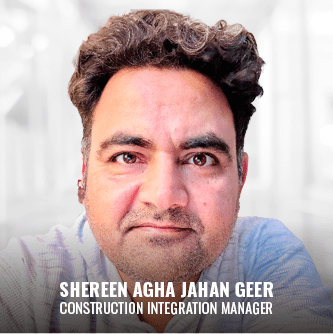
Construction Integration Manager Shereen Agha Jahan Geer joined Hill International in 2023 to help support our work delivering new data centers in the Washington, DC, metro area. Since joining the team, Shereen’s support has helped deliver these critical IT infrastructure projects according to plan, but Shereen’s journey to the U.S. construction industry has been anything but easy. Shereen shares the story of his career, his arrival in the U.S., and his plans below.
You began your construction career in Afghanistan on residential projects. What drew you to the field?
It’s not an overstatement to say the war led me to construction. Five decades of war demolished Afghanistan’s infrastructure, so pursuing a career in construction gave me the opportunity to contribute to the country’s recovery and reconstruction. I saw entire cities crumbled into ruins and observed the destruction of water, sewer, power, and telecommunications systems. Construction gave me a chance to do something about it.
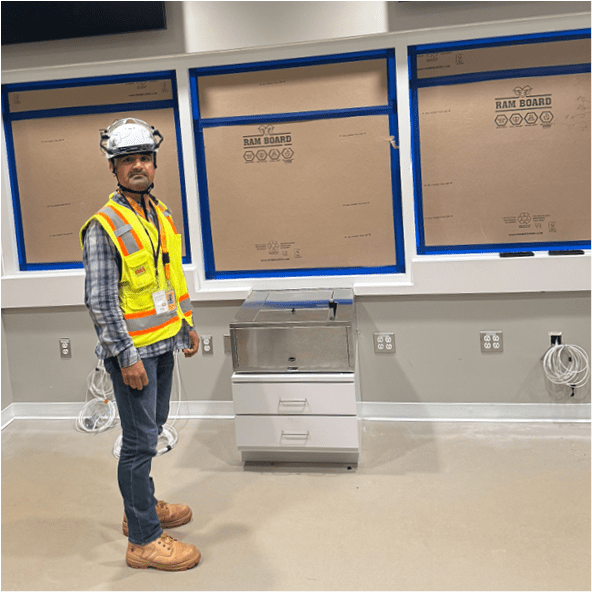
Following 9/11, Afghanistan captured global attention and the international community sought to participate in its rebuilding. This resulted in an increased need for people knowledgeable in construction. My ambition to be part of the rebuilders of the country and a high demand for people knowledgeable in construction motivated me to earn my bachelor’s in civil engineering.
Beginning my construction journey in 2013 fulfilled a dream. I started with limited knowledge and experience, yet I possessed the drive to learn and a strong ambition for my career despite the challenges ahead.
You worked with the United Nations Office on Drugs and Crimes (UNODC). What were some of your accomplishments?
UNODC funded alternative development projects in Afghanistan with the aim of encouraging communities to move away from illicit crop cultivation and transition to licit crops and other income-generating activities. Located in the southern-central portion of Asia, Afghanistan presents significant investment prospects across various industries, such as infrastructure, mining, agriculture, energy, and enhancing regional connections. These projects were part of a broader effort to promote sustainable livelihoods and contribute to socioeconomic development, peace, and stability in the country and the region.
My initial position was as an investment support specialist at the Administrative Office of the President of Afghanistan, and I quickly advanced to the role of deputy director of investment support. Our primary goal was to attract domestic and international investors to Afghanistan. We succeeded in drawing investors from China, Turkey, India, Central Asia, the UAE, and the European Union who invested across various sectors.
You began work in the U.S. in 2022. What were some of the challenges you faced in 1) getting into the U.S. and 2) joining the U.S. workforce? Anyone you’d like to single out for their support?
In August 2021, Afghanistan’s government collapsed. The U.S. and its allies shuttered their embassies, and the Taliban retook power. Having worked with the U.S. government, I faced two options: flee or face fatal consequences.
My family and I departed Afghanistan in March 2022. My wife, our five children, and I crossed the eastern border into Pakistan and lived there for three months. We secured visas at the U.S. Embassy in Islamabad in May 2022, and we arrived in the United States on May 23, 2022.
Relocating presented both opportunities and challenges. We found ourselves amidst a new environment characterized by distinct cultural, linguistic, and lifestyle differences, necessitating that we rebuild our lives and learn a new culture, language, lifestyle, history, and geography.
World Relief, an agency involved in refugee resettlement, managed our case. The U.S. immigration system mandates that immigrants undergo cultural, language, resettlement, and employment training. Typically, immigrants encounter challenges on their path. I was prepared mentally for such circumstances and aware of the potential difficulties.
I devised a plan to return to the construction industry, even if it meant starting at entry level. In this plan, I relied solely on my initiative, not seeking further guidance from my case manager or friends in the U.S., who had already outlined my starting steps.
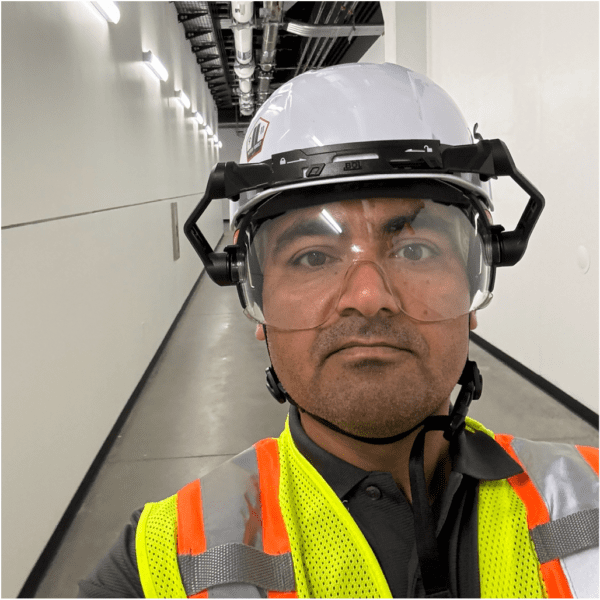
By my second week in the U.S., I received my driver’s license and soon after, I secured my first job offer. It was a huge responsibility. I knew I had to do my job to the best extent and in the meantime, I needed to deal with the language barrier, driving and traffic differences, and organizational culture among many others. My family and I began experiencing the initial challenges and shocks of migration and depression and homesickness impacted us every day. Our children were even asking to return home, unaware it would be a one-way journey.
Thankfully, there were many wonderful individuals who supported me and were always there to answer my questions and guide me through my new life and career. Backer Glasgow, Chad Green, Matt Green, Lisa Chambers, and Siar Kakar and, at Hill, Craig Baer and Rob Nash have been especially supportive in every way. I will always be thankful to them.
Since joining Hill in 2023, you’ve worked on some major IT projects. What are the similarities between these IT projects are your work in Afghanistan, if any, and what are the big differences you’ve seen so far?
IT projects in Afghanistan and my current project both emphasize infrastructure development, effective project management, and technology used for communication and collaboration. Both scenarios require adaptability, problem-solving skills, and dedication to achieving goals despite challenges.
The differences, however, are substantial. IT infrastructure projects in Afghanistan encounter unique challenges involving security, logistics, and resource availability. Moreover, the regulatory and cultural contexts are significantly different, impacting project execution and stakeholder engagement.
Residential and infrastructure projects in the U.S. and Afghanistan have similarities but comparing them is difficult. Afghanistan has a significant journey ahead to reach professional standards and norms.
What are your professional plans, both short- and long-term? Are there any other sectors or regions you feel you might enjoy? Any paths forward with Hill that appeal?
To be realistic, since I started in the U.S. construction industry, I have realized there is much to learn. Even with a Bachelor of Science in civil engineering from Afghanistan and a Master in Engineering Management from Pakistan, I still need to improve my skills for success here in the U.S. Joining the Hill family gave me access to Hill University, which I’ve used effectively so far.
Hill has given me the opportunity to explore the wonderful, challenging, and results-oriented world of construction. Today, I’m focusing my efforts on equipping myself with knowledge and expertise so that I can represent Hill to the best of my ability.
In the short term, I’ve just passed my Project Management Professional (PMP) exam, and next I plan to pursue the Certified Construction Manager certification from the Construction Management Association of America. In the long term, I need to focus on mastering a few essential areas, such as Building Information Modeling (BIM), cost estimation, and contract management.
The United States has a need and the opportunity for professionals throughout the construction industry. I believe I can have a louder voice and may pursue a Doctorate in Construction.
Share

March 12, 2025 | Articles
Get Stoked: Hill International Makes Big Waves in Spain’s Surfing Scene
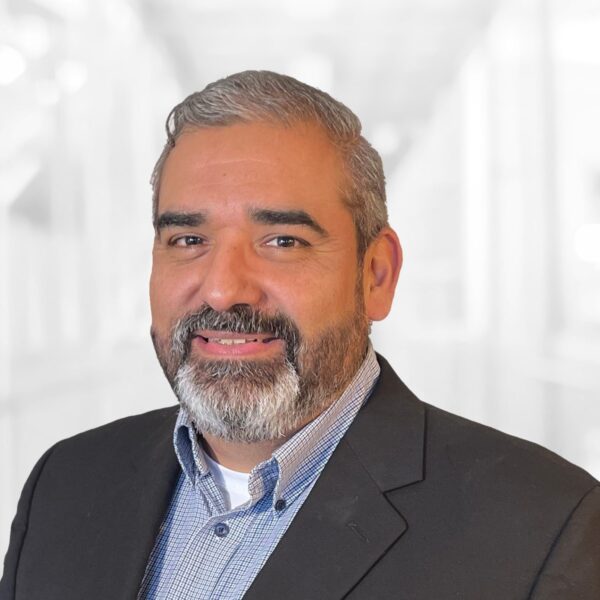
March 9, 2025 | Articles
Project Manager TJ Pinales: Helping Along the Road in San Antonio

March 4, 2025 | Articles
Balancing the Equation: An Interview with Project Manager Tracy Wiyrick

March 1, 2025 | Articles
A Lifelong Project: Calypso Kyriakopoulou’s Multifaceted Career in Construction

February 10, 2025 | Articles
Dual Delivery: A Viable Strategy for Complex Transit Projects

January 23, 2025 | Articles
Plotting a Roadmap to Success on the Torres de Colón Renovation
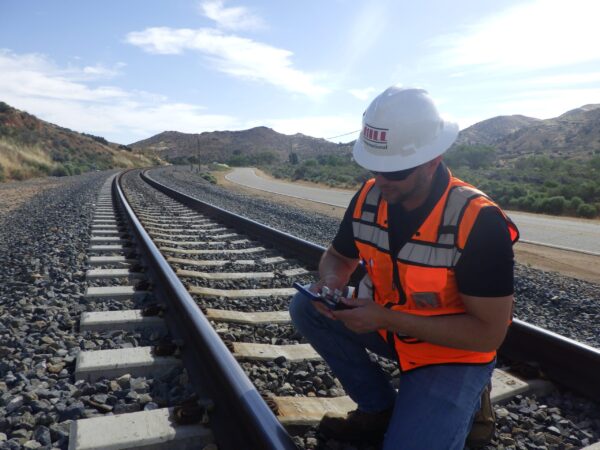
December 12, 2024 | Articles
Progressive Design-Build for Rail and Transit Projects: Room to Run

December 9, 2024 | Articles
Unlocking Growth: Maximizing the Benefits of the SBA’s Mentor-Protégé Program

December 8, 2024 | Articles
Mediterranean Luxury a Century in the Making: Four Seasons Resort Mallorca at Formentor